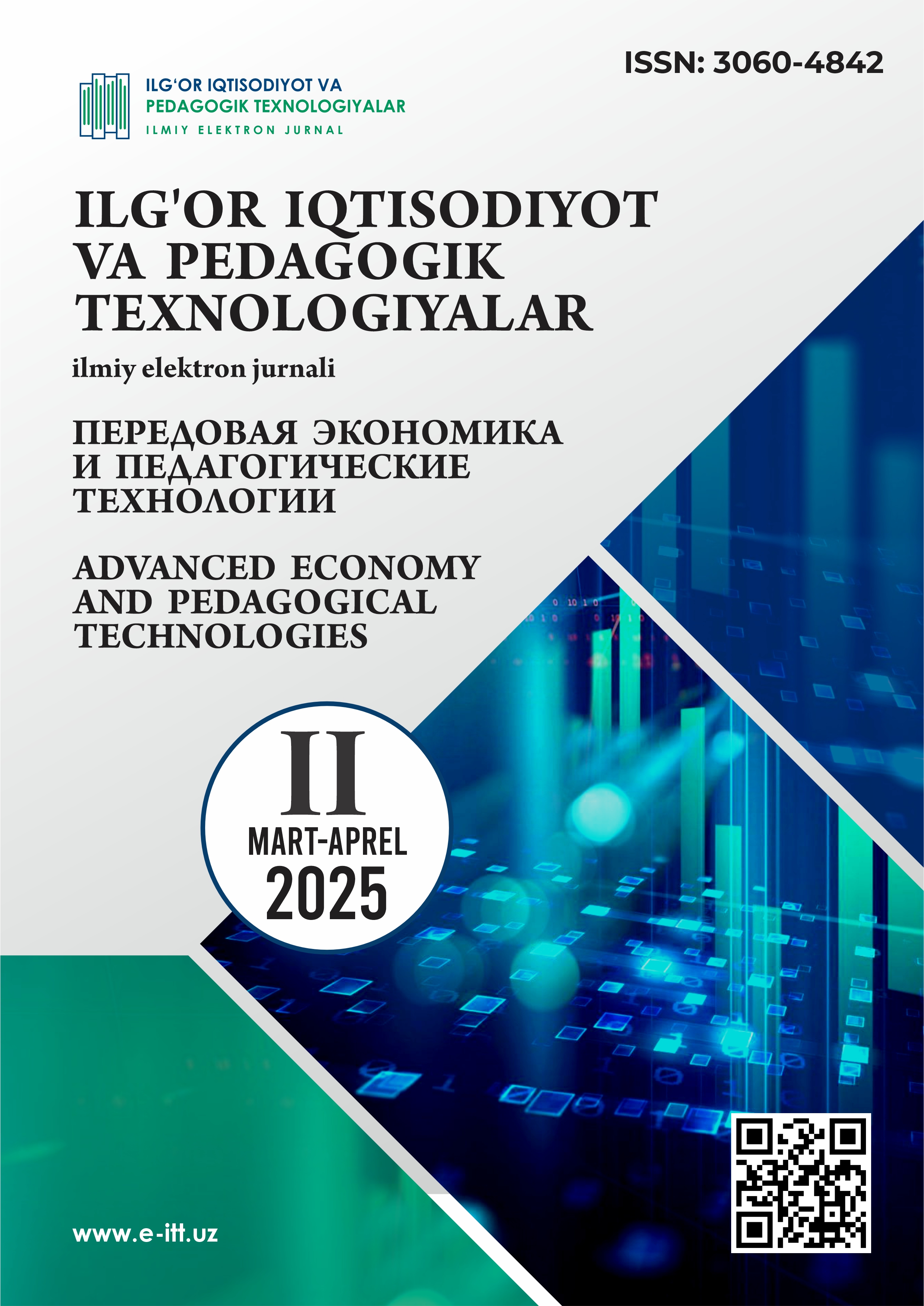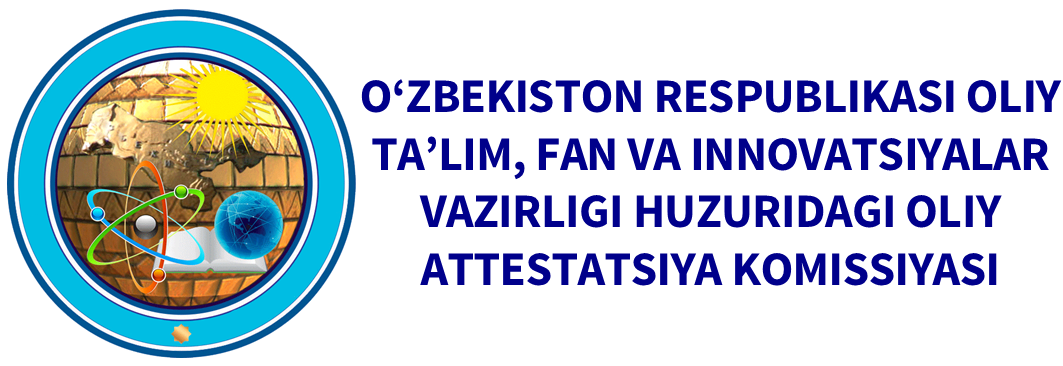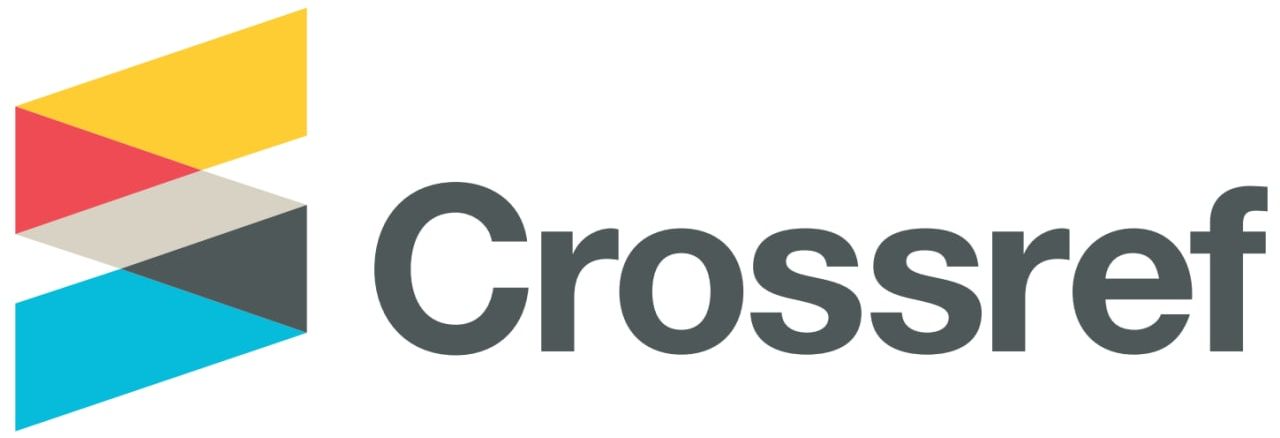O‘ZBEKISTONDA RAQAMLASHTIRISHNING UY XO‘JALIKLARI MOLIYASIGA IQTISODIY TA’SIRI
DOI:
https://doi.org/10.60078/3060-4842-2025-vol2-iss2-pp222-230Annotasiya
Ushbu tadqiqot raqamlashtirish va uning O‘zbekistondagi uy xo‘jaliklari moliyasiga iqtisodiy ta’siri o‘rtasidagi bog‘liqlikni o‘rganadi. Tadqiqotning maqsadi texnologik taraqqiyot, xususan, AKT (axborot-kommunikatsiya texnologiyalari) sohasidagi yutuqlar O‘zbekiston uy xo‘jaliklaridagi moliyaviy xatti-harakatlar va bozor dinamikasiga qanday ta’sir ko‘rsatayotganini aniqlashdan iborat. Tadqiqotda miqdoriy yondashuv qo‘llanilgan bo‘lib, Tobit regressiya modelidan foydalanib, turli milliy ma’lumotlar bazalaridan, jumladan, Uzstat va Global innovatsion indeksdan to‘plangan ma’lumotlar tahlil qilingan. Tadqiqot AKT indeksi, hukumatning AKT integratsiyasiga tayyorligi va har 10 000 ishchiga to‘g‘ri keladigan robotlar soni bilan ifodalanadigan avtomatlashtirish darajasi kabi o‘zgaruvchilarga qaratilgan. Ma’lumotlar 2011-yildan 2021-yilgacha bo‘lgan o‘n yil davomida to‘plangan va ushbu o‘zgaruvchilar va uy xo‘jaliklarining jamg‘arma stavkalari o‘rtasidagi sezilarli bog‘liqliklarni aniqlash uchun tahlil qilingan.
Kalit so‘zlar:
raqamlashtirish uy xo‘jaliklari moliyasi AKT indeksi O‘zbekistonBibliografik manbalar
Abalkin, L.I. (1997). Market economy. Questions of Economics, 6, 3-12.
Abalkin, L.I., Pogosov, I. A., & Glovatskaya, N. G. (2004). Russia's strategic response to the challenges of the new century. Moscow: Exam.
Acemoglu, D., & Restrepo, P. (2019). Automation and new tasks: How technology displaces and reinstates labor. Journal of Economic Perspectives, 33(2), 3-30.
Agibalov, A.V. (2009). Problems of insurance of agricultural crops with state support. Financial Bulletin, 1(19), 35-40.
Agibalov, A.V. (2010). Improving agricultural insurance carried out with state support. Innovative approaches in economic science and education: Collection of materials of the Interuniversity educational-methodical and scientific-practical seminar, 105-111.
Agibalov, A.V. (2014). Assessment of financing of state environmental programs. Financial Bulletin, 1(29), 65-70.
Agibalov, A.V., & Kaptsova, O. S. (2016). State of financial support of state support of the agro-industrial complex. Financial Bulletin, 1(32), 72-80.
Aglotkova, S.V. (2012). Agro-food policy of Russia: Features of development and natural consequences. Agro-food policy of Russia, 11, 7-15.
Allen, F., Demirgüç-Kunt, A., Klapper, L., & Pería, M. S. M. (2016). The foundations of financial inclusion: Understanding ownership and use of formal accounts. Journal of Financial Intermediation, 27, 1-30.
Asian Development Bank. (2021). Digital transformation in Central Asia: Opportunities and challenges. Manila: ADB.
Avdeeva, I. L., Golovina, T. A., & Polyanin, A. V. (2018). State regulation of priority areas of entrepreneurship in the digital economy. Public and Municipal Administration. Scientific Notes, 4, 13-21.
Ayyagari, M., Beck, T., & Hoseini, M. (2013). Finance and poverty: Evidence from developing countries. World Bank Economic Review, 27(1), 57-82.
Brynjolfsson, E., & McAfee, A. (2014). The second machine age: Work, progress, and prosperity in a time of brilliant technologies. W. W. Norton & Company.
Demirgüç-Kunt, A., Klapper, L., Singer, D., & Ansar, S. (2018). The Global Findex Database 2017: Measuring financial inclusion and the fintech revolution. Washington, DC: World Bank.
International Labour Organization. (2021). The impact of automation on employment in Central Asia. Geneva: ILO.
Jack, W., & Suri, T. (2016). The long-run poverty and gender impacts of mobile money. Science, 354(6317), 1288-1292.
Krylatykh, E. N., et al. (2015). Agrarian Europe in the 21st century. Moscow: Summer Garden.
OECD. (2020). Digital economy outlook. Paris: OECD Publishing.
Plotnikov, V. A., & Suleimanova, M. V. (2019). Analysis of models for ensuring national food security. Economics of Agricultural and Processing Enterprises, 5, 7-12.
Stiglitz, J. E., & Greenwald, B. (2014). Creating a learning society: A new approach to growth, development, and social progress. Columbia University Press.
Suri, T., & Jack, W. (2016). The impact of mobile money on poverty alleviation. American Economic Review, 106(3), 1111-1145.
United Nations Development Programme (UNDP). (2022). Digital finance and financial inclusion in Uzbekistan. Tashkent: UNDP.
World Bank. (2019). The digital revolution: Impact on finance and development. Washington, DC: World Bank.
World Bank. (2022). Uzbekistan’s path to a digital economy. Washington, DC: World Bank.
World Economic Forum. (2020). The future of jobs report 2020. Geneva: WEF.







